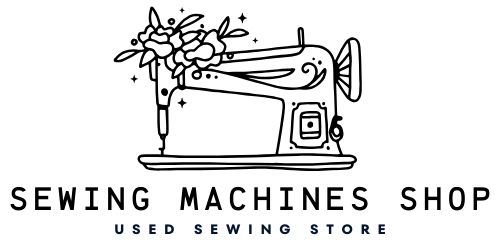Choosing the right sewing machine can be like picking the perfect pair of shoes. It needs to fit just right for your specific needs, and there are a lot of options out there! Whether you’re a beginner or an experienced sewer, finding the right machine can be overwhelming. So how do you make sure you’re getting the perfect one for your needs? Let’s dive into the world of sewing machines and make your choice a breeze. Remember, the ultimate destination for all your sewing machine needs is the Sewing Machine Shop.
Understanding Your Sewing Needs
Before you even start shopping, it’s crucial to figure out exactly what you need from a sewing machine. Are you planning on sewing simple projects like clothes and curtains, or are you looking to dive into intricate quilting and embroidery? Let’s break it down:
What Type of Projects Will You Be Working On?
The first question to ask yourself is: what do you plan to sew? If you’re into garment making, you might need a machine with versatile stitch options and a free arm for sewing sleeves and cuffs. On the other hand, if quilting or embroidery is your passion, a machine with specialized features like an extended workspace or built-in designs might be more suitable. Knowing your primary project type helps you focus on the machines designed to handle those tasks efficiently.
How Often Will You Be Sewing?
Will you be using your sewing machine daily, or is it more of a weekend hobby? If you’re going to be sewing frequently, investing in a durable, high-quality machine is essential. But if you’re only sewing occasionally, you might not need a machine with all the bells and whistles. The frequency of use will help you decide whether to go for a basic model or something more advanced.
Different Types of Sewing Machines
The next step in your sewing machine journey is understanding the different types of machines available. Each one has its strengths, and the right one depends on what you need.
Mechanical Sewing Machines
Mechanical sewing machines are like the old-school workhorses of the sewing world. They’re straightforward, reliable, and typically more affordable. If you prefer hands-on control and are comfortable adjusting settings manually, this could be the machine for you.
Computerized Sewing Machines
If you’re looking for convenience and precision, computerized sewing machines might be your best bet. These machines come with automatic settings, a variety of stitches, and even touchscreens. They take a lot of the guesswork out of sewing, making them perfect for both beginners and advanced users who want to speed up their projects.
Embroidery Machines
Do you want to create beautiful embroidery designs? An embroidery machine could be what you’re looking for. These machines are designed specifically for detailed embroidery work, often featuring built-in designs and the ability to import your own. They’re ideal for crafters who want to add a personal touch to their projects.
Serger/Overlock Machines
If you’re working with stretchy fabrics or want professional-looking hems, a serger might be what you need. Sergers stitch, trim, and finish seams all in one step, making them perfect for knitwear and athletic clothing. They complement a regular sewing machine by providing a clean, durable finish.
Features to Look for in a Sewing Machine
Now that you’ve narrowed down the type of sewing machine, let’s talk features. Certain features can make your sewing experience more enjoyable and efficient. Here are some of the key ones to keep an eye out for.
Stitch Options
Look for a machine with a variety of stitch options. Even if you’re just starting, having more stitches at your disposal gives you the flexibility to grow in your sewing journey. Basic stitches like straight, zigzag, and buttonhole are must-haves, but decorative stitches can add a fun flair to your projects.
Automatic Buttonhole Function
Who wants to mess around with creating buttonholes manually? An automatic buttonhole function makes this process a breeze. With just a push of a button, your machine will sew perfect buttonholes every time.
Speed Control
Are you a beginner who needs to take it slow, or are you an experienced sewer who wants to zoom through projects? Adjustable speed control lets you set the pace that’s right for you. This feature is especially helpful when working on intricate details that require precision.
Adjustable Presser Foot Pressure
Different fabrics require different amounts of pressure from the presser foot. For thick fabrics like denim, you might need more pressure, while delicate fabrics like silk require a lighter touch. Adjustable presser foot pressure lets you switch between fabrics with ease, ensuring smooth, even stitching.
Needle Threader and Cutter
Save time and frustration with a built-in needle threader and cutter. These features make threading your needle and trimming threads a quick and painless process, letting you focus on the sewing itself rather than the prep work.
Brand Comparison
The brand of your sewing machine can play a significant role in your experience. Let’s take a closer look at some popular brands available at the Sewing Machine Shop.
Brother Sewing Machines
Brother is known for its user-friendly, feature-packed sewing machines. Whether you’re a beginner or a pro, Brother machines offer great value for money, with a wide range of options that cater to different skill levels.
Janome Sewing Machines
Janome machines are recognized for their durability and precision. If you’re serious about sewing and want a machine that can handle heavy-duty work, Janome is a solid choice. They’re known for producing high-quality machines that last for years.
Singer Sewing Machines
Singer is one of the most iconic brands in the sewing world. They offer a wide range of machines, from basic models to more advanced options. Singer machines are generally affordable and reliable, making them a popular choice for beginners.
Bernina Sewing Machines
If you’re looking for a top-of-the-line machine with advanced features, Bernina is a premium brand worth considering. Bernina machines are known for their superior build quality, making them a favorite among professional sewers and quilters.
Budget Considerations
Sewing machines come in a wide range of prices, so it’s essential to find one that fits your budget. Let’s break down the different pricing tiers.
Entry-Level Models
If you’re just starting out, there’s no need to splurge on a high-end machine. Entry-level models usually range from $100 to $300 and offer the basic features you need to get started. These machines are perfect for beginners or casual sewers who don’t need all the extras.
Mid-Range Options
For those who want a bit more versatility, mid-range sewing machines typically cost between $300 and $800. These machines offer more stitch options, better build quality, and additional features like automatic threading or computerized controls. They’re a good choice for intermediate sewers who are ready to take their skills to the next level.
Premium Choices
If you’re serious about sewing and want the best of the best, premium sewing machines can cost upwards of $1,000. These machines are packed with advanced features, robust construction, and often come with extended warranties. They’re designed for heavy use and can handle a wide range of sewing tasks with ease.
Warranty and Customer Support
Don’t overlook the importance of a good warranty and reliable customer support. Sewing machines are a significant investment, so you want to make sure you’re covered in case anything goes wrong.
Importance of Warranty
A solid warranty gives you peace of mind, knowing that your investment is protected. Look for machines that come with a comprehensive warranty covering parts and labor. Some brands even offer extended warranties for an additional cost, which can be a worthwhile investment.
Access to Customer Support
When you’re learning to use a new sewing machine, having access to good customer support can make a world of difference. Whether it’s troubleshooting a problem or getting help with a feature, responsive and helpful customer service ensures that you get the most out of your machine. The Sewing Machine Shop offers excellent support and resources for all your sewing needs.
Test Before You Buy
Before making your final decision, it’s a good idea to test out the sewing machine. Here’s how to go about it.
Visit a Physical Store
If possible, visit a physical store to see the machine in action. Testing it out can help you get a feel for the controls, features, and overall usability. Many stores offer demonstrations, so you can see how the machine performs on different fabrics and projects.
Online Research and Reviews
If visiting a store isn’t an option, online research can be just as valuable. Check out customer reviews, video tutorials, and comparisons. Look for honest feedback from people who have used the machine for similar projects to yours. The Sewing Machine Shop is a great resource for product reviews and expert recommendations.
Conclusion
Choosing the right sewing machine is about matching the machine’s capabilities to your needs. Whether you’re just starting or looking to upgrade, consider the types of projects you’ll be working on, the features that will make your sewing easier, and your budget. With so many great options out there, you’re sure to find the perfect sewing machine at the Sewing Machine Shop.
FAQs
How much should I spend on a sewing machine?
The amount you should spend depends on your skill level and the type of sewing you plan to do. Entry-level machines can cost around $100, while more advanced, feature-rich machines can go up to $1,000 or more.
What’s the difference between a mechanical and a computerized sewing machine?
Mechanical machines require manual adjustments, while computerized machines offer automated features like stitch selection and speed control, making them more convenient but often pricier.
Can I start with an embroidery machine as a beginner?
Yes, but it depends on your interest and commitment to learning. Embroidery machines often come with more complex features, so be prepared for a steeper learning curve if you’re just starting out.
Are there sewing machines specifically for quilting?
Yes, many machines are designed with quilting in mind. Look for features like a larger workspace, quilting stitches, and an even feed system for handling bulky fabrics.
How important is a brand when choosing a sewing machine?
While brand reputation can be an indicator of quality, it’s essential to focus on the features and functions that meet your specific needs. Reputable brands often offer better warranties and customer support, which can be beneficial in the long run.
Visit our Sewing Machine Shop for the best sewing machine deals.
For more insightful articles, visit our Medium page !

